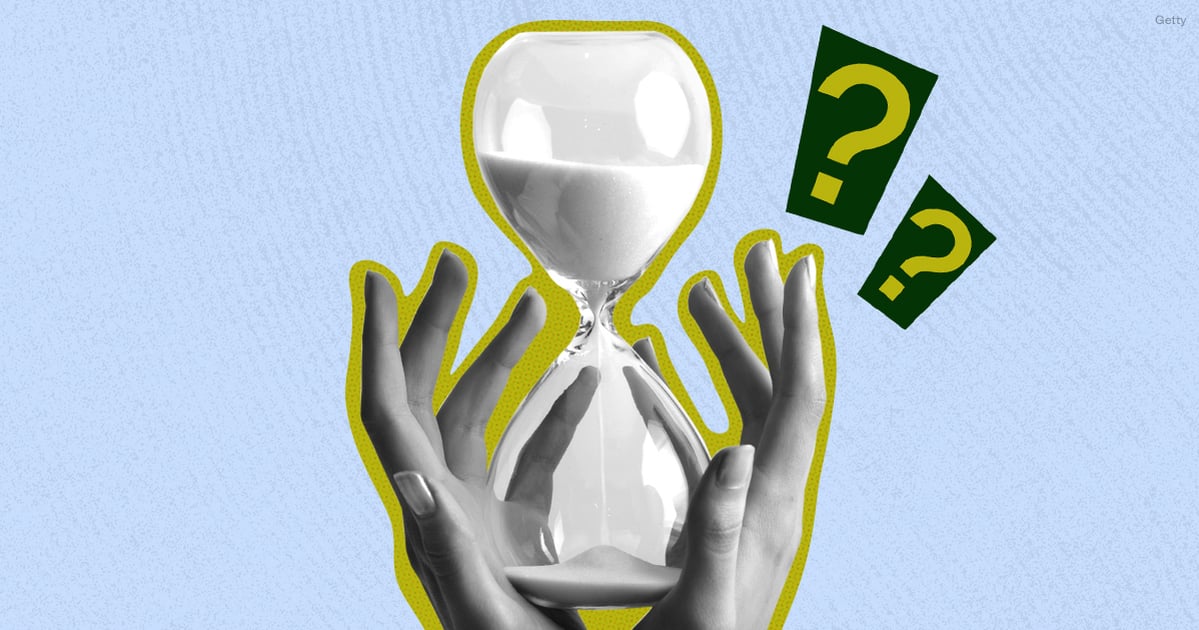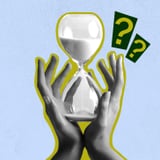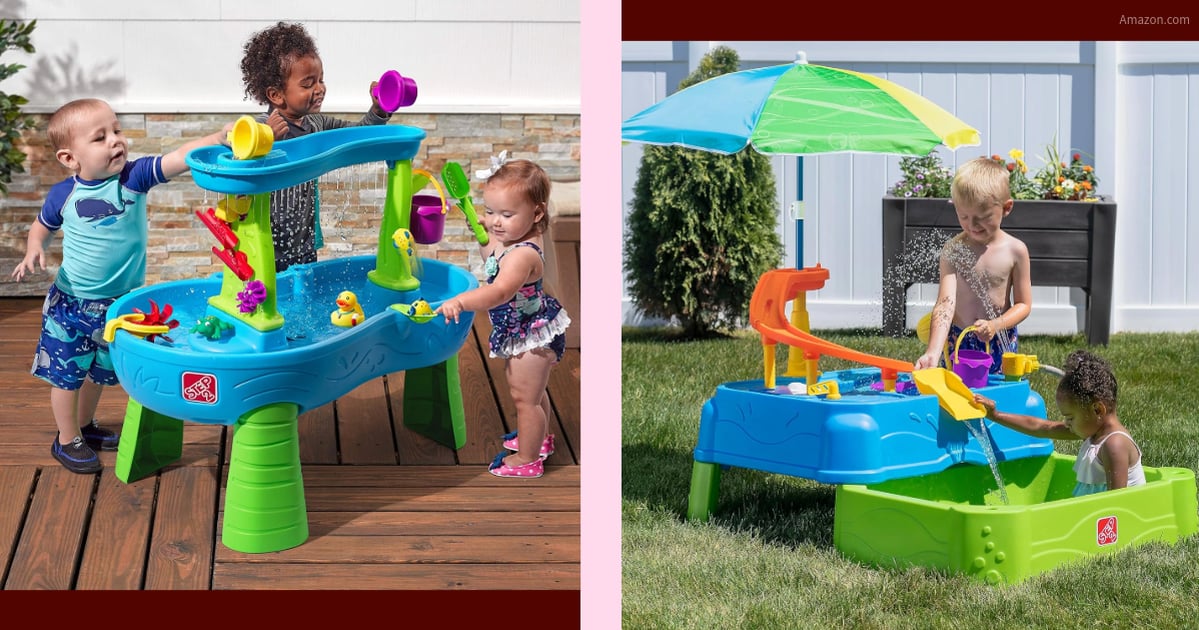Nov. 7, 2094. Mark your calendars, because that’s only 69 years, 342 days, and seven hours (give or take) before I kick the bucket at 95 years old . . . at least, according to AI. My death date is courtesy of Brent Franson’s “Death Clock” – a mobile app designed to calculate your approximate time of death, based on a myriad of data points and lifestyle factors. “What we’ve done is we’ve built a proprietary AI that’s trained on just under 1,200 longevity studies that predicts the date of your death based on the way that you’re currently living your life,” Franson tells PS. “But it also makes a prediction of how much longer it thinks you can live if you make changes to your life.”
What may seem like a morbid factoid to post on your Facebook page, however, is not necessarily as terrifying as it may initially appear. In fact, despite its intimidating facade, Death Clock actually wants to help people add years to their life. “We’re trying to make it fun and easy for people to do the things they need to do to live a longer life,” Franson says. “When I remember how short life is, it does two things. One is it helps me to be more present and really savor the time that I do have. And then two, it helps me to be motivated to live longer.”
Experts Featured in This Article:
Maria Teresa Anton, MD, is an endocrinologist and educator at Pritikin Longevity Center.
How Does Death Clock Work?
Inspired by this perspective, I approached the Death Clock calculator with a healthy amount of fear and curiosity. The app asks you 29 quick multiple choice questions spanning topics like substance use, exercise habits, personal relationships, and mental health. It took me about five minutes to complete. Afterward, I held my breath and waited for the results, bracing myself for impact.
“It helps me to be more present and really savor the time that I do have.”
In the interest of transparency, the first time I completed my Death Clock calculation, I was given a death date of December 2090, which would make me 91 at my time of death. When I first took the Death Clock test, I was more stressed, eating more processed food, and in a relationship. When I took the questionnaire again a little over a month later, I was single, spending more time with friends, eating better, and exercising more consistently. Both times, I was shocked to see that AI expected me to live well into my 90s. I thought for sure I’d be somewhere in the 80s . . . maybe even late 70s. After this initial relief washed over me, a wave of panic quickly followed. What quality of life would I have at 90-something years old? Did I even want to live that long? Or was 60-something more years not enough?
This is where Death Clock really shines. Not only can the app offer you specific suggestions to add more years onto your life (although I think I’m just fine with 90), but it can also help make those years more enjoyable. “We give you an evaluation,” Franson says. “Like, ‘Hey, here are the ways that you’re likely to die. Here are the areas where you’re doing well. Here are lifestyle considerations, medical considerations.'” You then receive a personalized longevity plan based on your results. This may include supplements, recommended cancer screenings, medical devices, or just topics to bring up at your next doctor’s visit. There’s a free three-day trial to unlock your full evaluation – including strengths, potential risks, and recommendations for a longer life – but after the trial, this information costs $15 a month or $60 a year to access.
What to Consider
Death Clock is not a doctor, and while its algorithm is based on expert studies, it’s not expert-backed. With this in mind, it’s always best to speak with a healthcare professional before taking any medical advice, including new supplements, and significant changes to diet or lifestyle.
Additionally, although Death Clock did ask for some concrete data (like blood pressure, cholesterol, glucose, and the approximate lifespan of any living grandparents), I did notice details related to chronic disease, medical, and family history were a bit vague. To that point, I’m not entirely convinced that any one test can tell you with 100 percent certainty when you’ll die. That said, all of Death Clock’s questions were related to high-risk factors for longevity (sleep, stress, social engagement, etc.), and for it being such a quick questionnaire, I think Death Clock’s estimate seems fairly accurate. Just remember, longevity is complicated, and there’s likely a lot more to the story than a multiple choice-based app can surmise.
What Experts Say
If you’re interested in learning more about longevity, AI might be a good place to start, but it’s not the end all be all. “The most reliable information about longevity can be found in peer-reviewed medical journals, reputable health organizations like the World Health Organization (WHO) and the Centers for Disease Control and Prevention (CDC), and academic institutions,” says endocrinologist Maria Teresa Anton, MD. “When researching longevity online, it’s crucial to verify the credibility of the sources.”
Dr. Anton specifically recommends looking for established medical institutions, peer-reviewed journals, and certified health professionals. “Be cautious of anecdotal evidence and websites that promote quick fixes or miracle cures, as these are often not supported by scientific evidence,” she says. And as always, it’s best to discuss any personalized medical goals with a healthcare professional.
My Death Clock Results
In my case, Death Clock thinks I’m most likely to die from chronic disease, stroke risk, or other preventable (!) diseases. Some of my top suggestions included better sleep quality (a high-risk lifestyle factor), further processed food reduction, and increased social engagement. My strengths included regular cardio exercise and no substance use.
“It’s rare that I’ve had somebody go through [Death Clock] and be like, ‘I wish I didn’t do that.’ I’ve actually never had anybody say that,” Franson says. “We’re all going to die. So the question is: how can we be informed and do everything we can…to get the most out of the time that we do have?” I’m not sure I have the answer just yet, but check back with me in 69 years.
Chandler Plante (she/her) is an assistant health and fitness editor for PS. She has over four years of professional journalism experience, previously working as an editorial assistant for People magazine and contributing to Ladygunn, Millie, and Bustle Digital Group.




